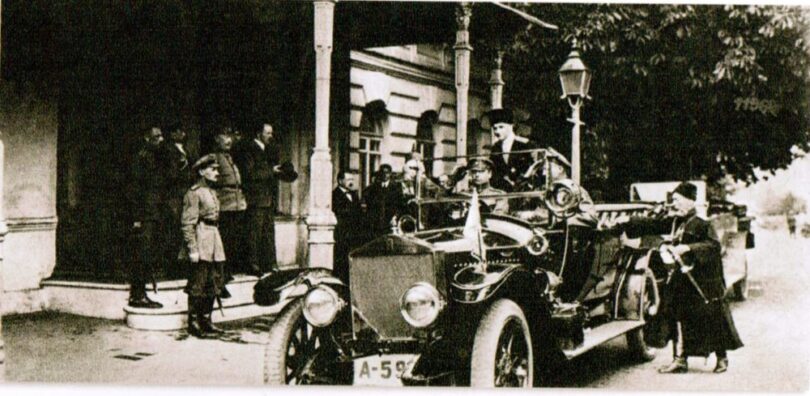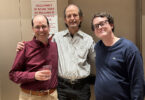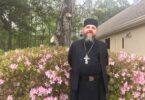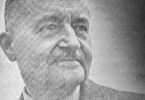Part One
I already spoke about my meetings with Metropolitan Anthonyi in my memoirs, where I mentioned that our relations (very kind) were reestablished in Belgrade. I deeply regret that the French police confiscated my correspondence during their searches, including letters from Metropolitan Anthony.
I considered, and still consider Metropolitan Anthony to be a great person, not only as an outstanding theologian (see his study The Moral Significance of the Dogma about the Holy Spirit and other essays), an outstanding mentor of pastors (Lectures on Pastoral Theology), an exceptional thinker (see his magisterial dissertation on Free Will and his splendid book about Dostoevsky), as well as an outstanding Church administrator. He had many authentic and genuine traits. Although he was not always consistent, he remained an unbending reactionary in his ecclesiastical and political views notwithstanding some of his sublime traits. I was especially impressed by his devotion towards young people who in turn came to him with open hearts.
Part Two
Life brought me together with Metropolitan Anthony on more than one occasion. I described one such “encounter” with him earlier in my memoirs, when I was part of the Hetman Government (1918). I also described my meetings with him in Belgrade and the [Russian Student Christian] Movement in my reminiscences devoted to the Movement. None of this exhausted that what remained with me from Metropolitan Anthony. He was perhaps the major Russian hierarch in the 20th century (he was referred to as “Anthony minor” in relation to “Anthony (Vladkovskii) major”, the metropolitan of Peterburg, an outstanding personality; and yet, Metropolitan Anthony Khrapovitskii as a person, stood incomparably higher than him). The fact that he was Rector of three theological academies immediately sets him apart. His dissertation on Free Will has not diminished in value and his lectures on pastoral theology remain a classic.
Metropolitan Anthony was of short stature with wide shoulders and a broad face. He was completely tone-deaf and could never harmonize with the choir. His manner of serving was not impressive. But I do remember one of his homilies (Sunday of the Prodigal Son), how he was inspired by it. When he came to explain the words “(..) his father saw him and had compassion for him (…)” he was so moved by those words, that father’s love, that he was moved to tears and briefly stopped his sermon.
I would like to point out two other things about him (I briefly noted these earlier in my memoirs about the R[ussian],S[tudent].C[hristian].M[ovement]) One was his exceptional love towards young people. Besides his affection towards the youth in the Movement I am aware of many incidents both in Russia and in Belgrade, when any young person coming to him could expect to find kindness, understanding and help.
His other trait was his love for the Orthodox East, his obsession with Hellenism. We spoke about this on several occasions, in all respects he would give first place to the Greek Church.
I wrote about my personal relations with Metropolitan Anthony in my other memoirs.
Translated by Archpriest Alvian Smirrensky. The reminiscences of Fr. Vasilii Zenkovskii from the Bakhmeteff Archive of Columbia University. “Part One” was published in Zapiskii Russkoi Akademicheskoi Gruppy v SShA 26 (1994): 9-10; “Part Two” in vol. 27 (1995): 4-5.











